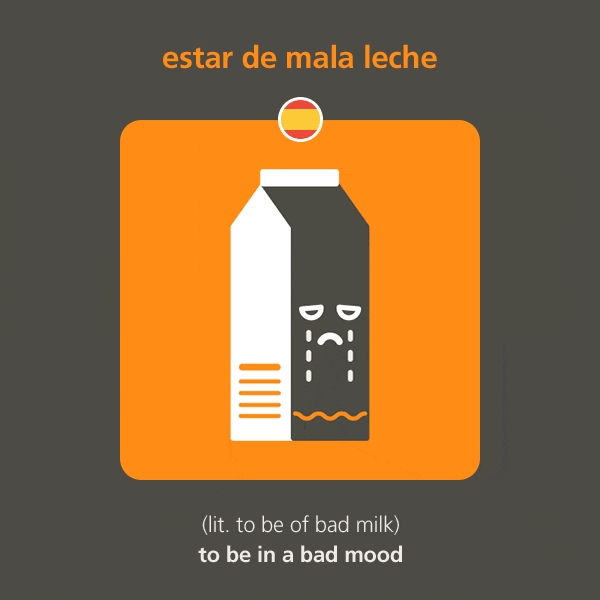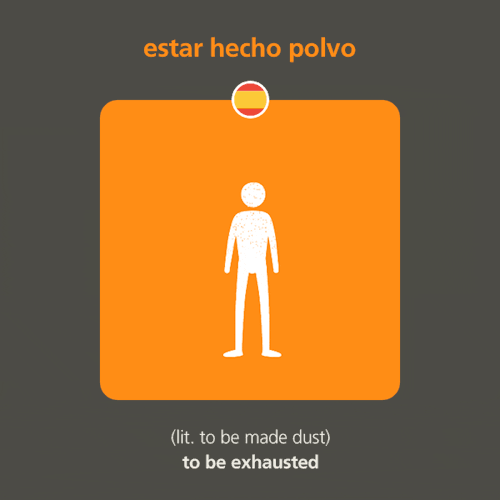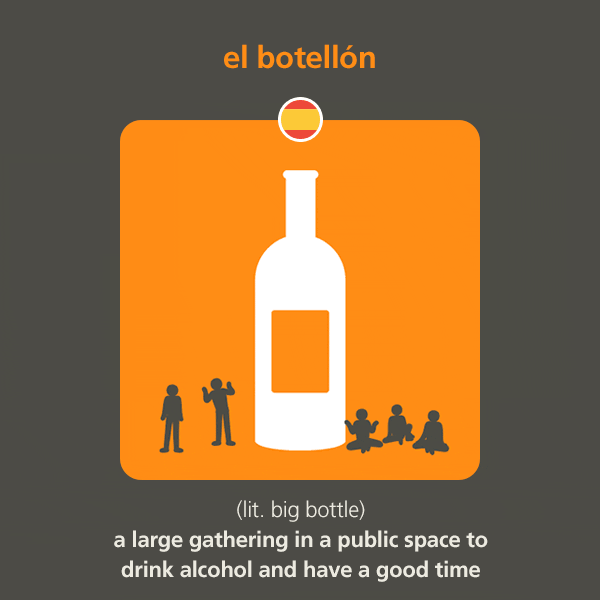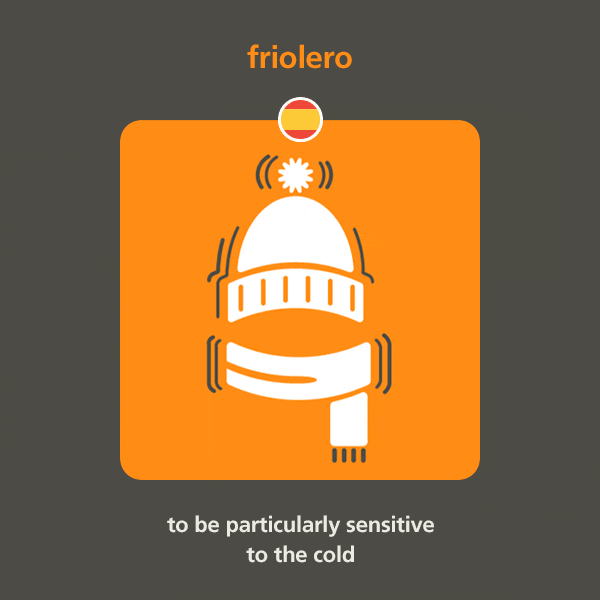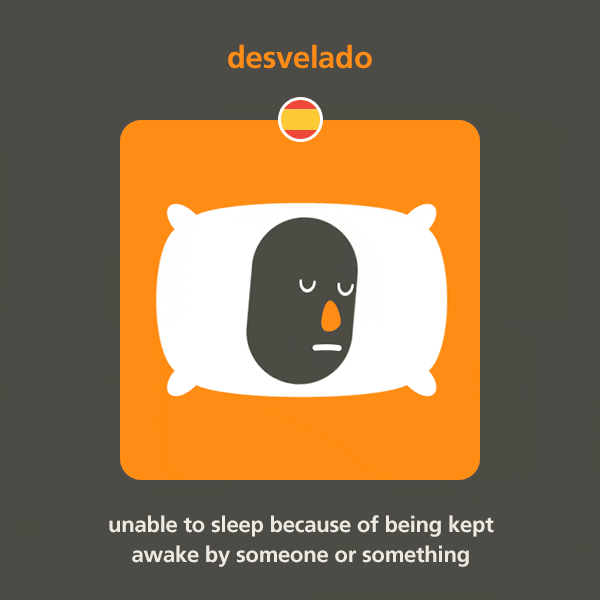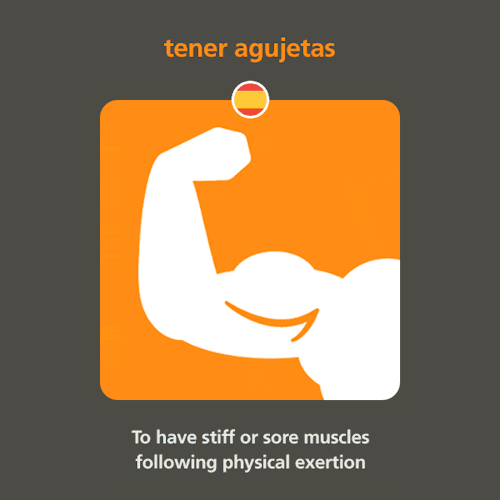#vocabulario
Disclaimer: some of these words are really vulgar or rude, use at your own risk!
Tío/a = Dude [Tío, ¿qué dices?]
Pavo/a = Guy, girl [¿Quién es ese pavo?]
Ir a saco = Go all out, not beat about the bush [Este tío siempre va a saco con las mujeres, qué asco]
A tomar por saco / A tomar por culo = Fuck off [Vete a tomar por culo, eres un imbécil]
Pirarse = To leave [Me piro, que tengo muchas cosas por hacer / Pírate tío, no queremos que vengas con nosotros]
Pillar = To buy or To grab or To catch [Píllame una cerveza cuando te pases por el super, porfa // pilla tus cosas, nos piramos // creo que he pillado un resfriado]
Ser un/a cortado/a = To be a very shy and self-conscious person [al principio es muy cortado, pero cuando te pilla confianza no calla nunca]
Qué corte = It’s so embarrasing [qué corte, mis padres me han pillado mirando porno / joder, menudo corte me da hablar con esa chica]
Alucinar = It assumes the object you’re praising has had such an impact it is comparable to a hallucinogenic drug [Alucina, Cristina está embarazada / este coche es de alucine, tío]
Pasta = Money [Ojalá tuviese suficiente pasta para pillarme un coche nuevo]
Pavos = Money (euros) [Esta tablet cuesta 300 pavos]
Dar por culo = To bother [Este tío está dando mucho por culo, qué pesado]
Curro = Job, work [No tengo curro, así que no tengo pasta]
Currar = To work [Hoy no puedo salir, mañana tengo que currar]
Birra = Beer [¿Nos vamos a por unas birras?]
Chungo/a = Dodgy or Sick [Esta tía es muy chunga, no te le acerques / Estoy chungo, tengo la gripe]
Estar taja = To be drunk [Estoy muy taja, tío]
Joder= Fuck [Joder, que frío hace]
Hortero/a = Tacky [Esta chaqueta es muy hortera, tío. No te la compres]
Me abro = I’m leaving [Estoy cansado, me abro]
Bajón = A downer [Me pilló un bajón cuando vi a mi ex con otro pavo]
Cutre = Shabby or Stingy, tight [Este bar es muy cutre, mejor nos abrimos // Este pavo no invita a nadie nunca, es un cutre]
Taja = Drunkenness [Menuda taja llevo encima]
Tajarla= To get drunk [Vamos a tajarla, no quiero aburrirme esta noche]
Bicho = Someone ugly [Joder, vaya bicho / Contigo no, bicho]
Ser un cachondo = To be extroverted and funny [Javi es un cachondo, me cae muy bien] (it’s NOT the same as “estar cachondo, which means to be horny!)
De puta madre = Awesome, great [Esta comida está de puta madre]
Ni de coña = No way [Ni de coña me gasto 100 pavos en un regalo]
Acojonarse = To be scared [Estoy acojonado, ni de coña voy al cementerio de noche]
Estar depre = To be really sad [Está muy depre, debemos hacer algo para que se anime] (even though depre stands for depression, it doesn’t mean a literal depression)
Me parto = LOL [Me parto contigo, tío]
Me meo = LOL (too) [¡Ay que me meo!]
Ser buena gente = To be a good person [Es buena gente, puedes confiar en él]
Ni zorra = No idea [Ni zorra, tío]
Ni puta idea = No idea (too) [No tengo ni puta idea]
Camello = Drug trader [Ese tío es un camello muy famoso en el barrio]
Echar la pota/Potar = To throw up [Estoy muy taja, creo que voy a potar]
Estar como una cabra = Mad as hatter [Esta tía está como una cabra, me da miedo]
Let me give you some context for this phrase: my grandmother told me that her Andalusian grandma (who was always saying proverbios y refranes) used to say that someone who is in their 20s “está en edad de merecer.”
That was something that I’ve never heard, and I obviously had a really naughty thought (I think my great-great grandmother thought exactlythe same), but the DRAE’s definition is “época en que los jóvenes buscan mujer o marido” (time when young people seek wife or husband).
So now everytime someone is looking for a partner, I use this new expression. Thank you, grandma!
noun(feminine)
1. A crowd or horde
2. An abundance, mass or plethora.
La noche anterior, había soñado con una muchedumbre de monjas que se desnudaban frente a él durante una masa en la que él era el cura. Tengo que volver a ver mi terapeuta, se dijo a si mismo.
The night before, he had dreamed of a crowd of nuns who undressed themselves in front of him during a mass at which he was the priest. I have to go and see my therapist, he told himself.
adjective
awesome, great, fantastic, amazing.
La noche siempre es cojonuda cuando estoy contigo.
The night is always awesome when I’m with you.
noun(feminine)
1. a word or phrase said often and out of habit, a catchphrase
2. a cane or walking stick.
Ella habla en muletillas, y en fin no dice nada.
She speaks in catchphrases, and in the end says nothing.
noun(masculine)
1. a womanizer, ladies’ man or petticoat chaser
2. a group or set of women.
adjective pertaining or relating to women.
Lord Byron es uno de los mujeriegos más famosos de la historia.
Lord Byron is one of the most famous petticoat chasers in history.
interjection
originating from the Arabic for “and may God will it” the word “ojalá” translates as hopefully, let’s hope, I hope, or “God willing.”
Ojalá que no haya una cola en McDonald’s, podría comerme una vaca.
Hopefully there’s no queue at McDonald’s, I could eat a cow.
verb
to yearn for, long for, or remember with sorrow the absence, deprivation or loss of someone or something.
Te añoro cada vez más.
I long for you more and more.
noun(feminine)
1. something soft, thick and sticky (e.g. dough)
2. something crushed, a flattened mass
3.(colloquial) a mess or botch, something made haphazardly without rhyme or reason
4.(colloquial)excrement
5.(colloquial) someone who’s excessively annoying.
Katie Hopkins es una plasta total, pero no deberíamos matarla.
Katie Hopkins is terribly annoying, but we shouldn’t kill her.
noun(feminine)
zip or zipper.
No puedo quitarte los pantalones – ¡la cremallera está rota!
I can’t take your trousers off – the zip is broken!
noun(masculine)
1. an omen or portent
2. luck (good or bad).
Dondequiera que fuera, el hombre era un pájaro de mal agüero.
Wherever he went, the man was a bringer of bad luck.
verb
to set sail.
La flota zarpó del puerto, dejando a las esposas de los marineros al llorar en el muelle.
The fleet set sail, leaving the wives of the sailors in tears on the dock.
noun(masculine or feminine)
1. light sleep that one who is dozing finds themselves in
2. half-sleep, fitful sleep that is frequently interrupted.
Pasé la noche en duermevela, soñando con gente sin cara en una ciudad brumosa.
I spent the night in fitful sleep, dreaming of faceless people in a hazy city.
verb
1. to look down on, treat like dirt, or not give the time of day to
2. to brush aside, give the cold shoulder, or ignore.
El director despreciaba a todas las mujeres con sobrepeso. Cada vez que ninguneaba a alguna, tenía que esconder una pequeña sonrisa.
The director despised all overweight women. Each time he treated one like dirt, he had to hide a little smile.
noun(masculine)
a teacher’s pet, swot or nerd.
Definitivamente soy la empollona de mi clase, entre mi blog de la palabra del día y las manzanas que le traigo a mi profesora cada día.
I’m definitely the teacher’s pet of my class, what with my word of the day blog and the apples I bring my teacher every day.
noun(masculine)
a fat cat, bigwig, wealthy or powerful person.
Los peces gordos sólo miran por sus propios intereses.
Fat cats only look after their own interests.
noun(masculine) (slang)
literally translating as “the candle holder” and conjuring an image of someone silently holding a candle to light a couple’s romantic dinner, “un aguantavelas” is a third wheel or spare part (romantically speaking).
Qué pobre este tío, siempre es el aguantavelas.
That poor guy, he’s always the third wheel.
adjective
1. burning, scalding
2.(of a colour)blazing
3. passionate, fervent, or ardent.
Su pasión ardiente se extinguió por el viento del norte.
Their burning passion was extinguished by the north wind.
verb
To brag or boast.
Ese tío es múy desagradable, siempre está fanfarroneando.
That guy is really obnoxious, he’s always boasting.
verb
1. to madden, drive crazy or drive to distraction
2. to go mad, lose your senses, or freak out
3. to be crazy about
Enloquezco por los videojuegos, pero a mi novia le enloquecen. Hace dos semanas, ella se enloqueció y tiró todos mis juegos a la basura!
I go mad for video games, but they drive my girlfriend crazy. Two weeks ago she went nuts and threw all my games in the bin!
noun(feminine)
an extraordinary display of emotion for very little reason.
Haces tanta alharaca que no te puedo tomar en serio.
You make such a fuss I can’t take you seriously.
noun(feminine)
a person with refined taste, a pleasure-seeker, one who likes the good things in life.
Sólo sibaritas pagarían los precios astronómicos de esos restaurantes.
Only those who like the finer things in life would pay the astronomic prices of those restaurants.


